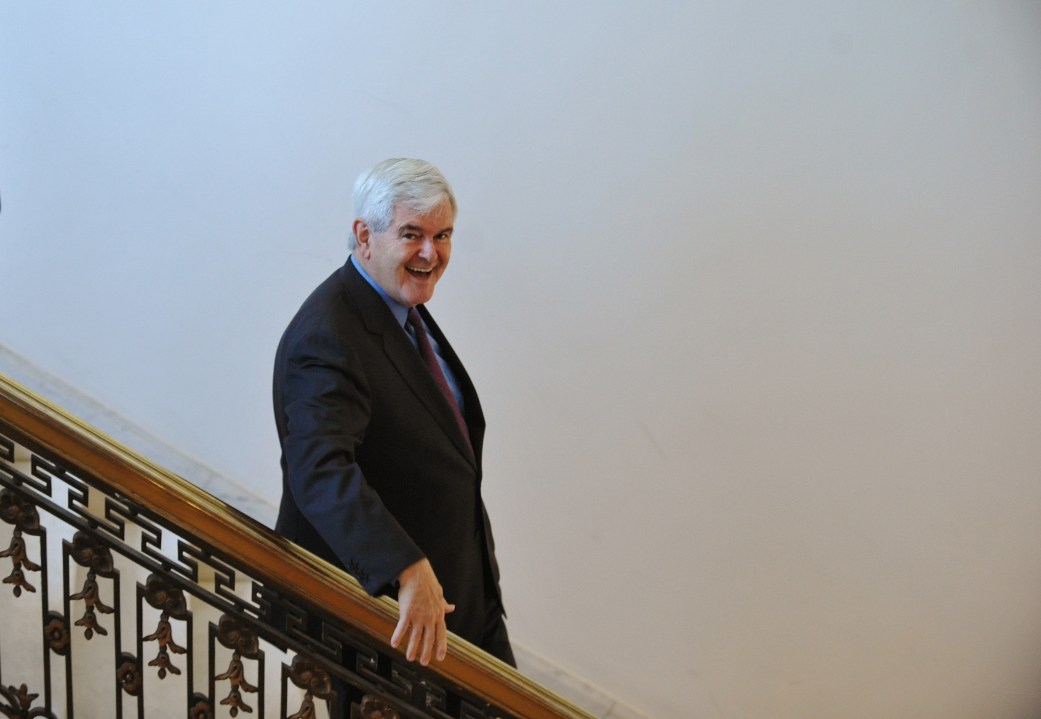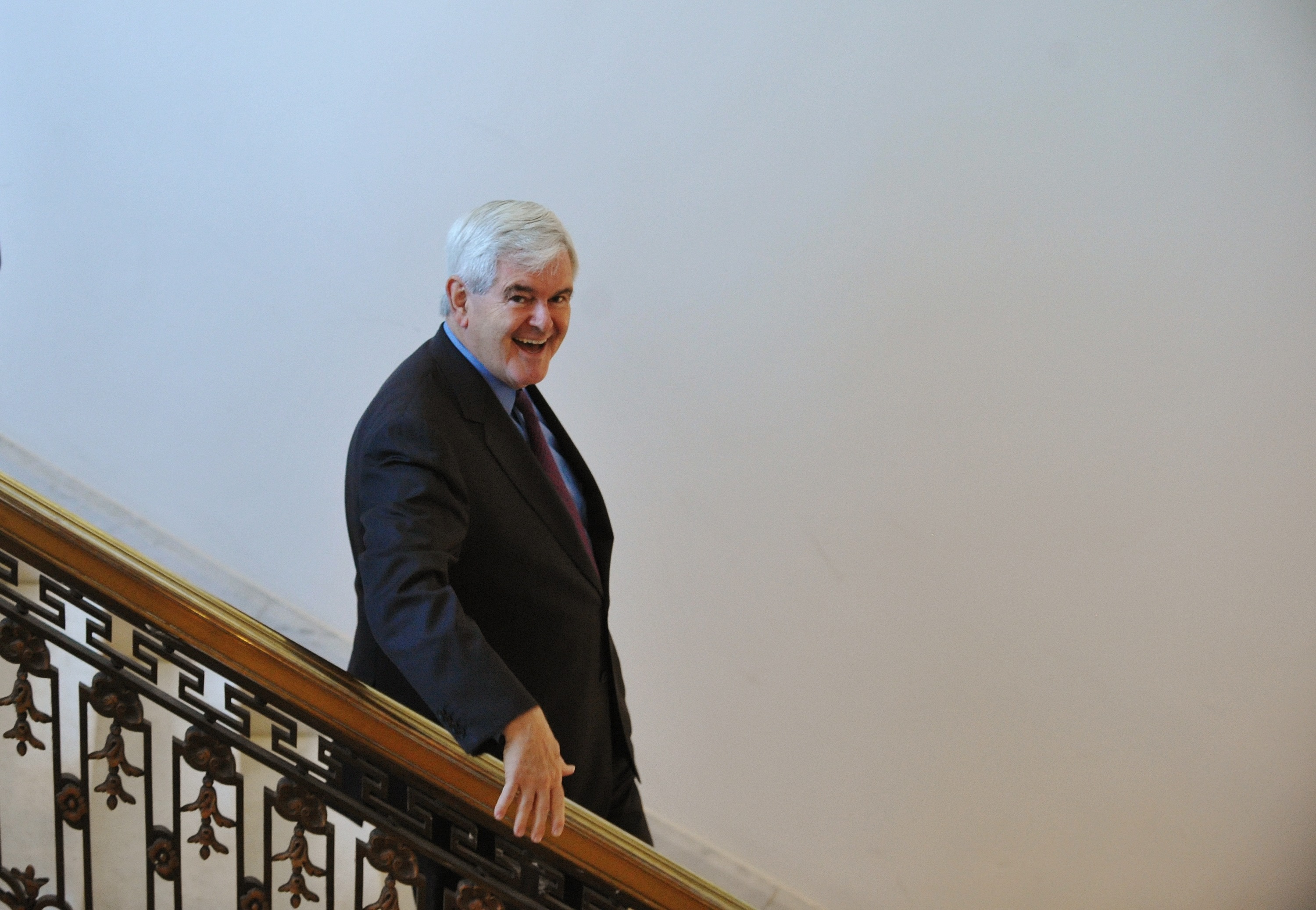 A couple of days ago, Newt Gingrich’s campaign for the US presidency imploded when the
leaders of his campaign team quit en masse. The exodus — which included his campaign manager, spokesman and senior strategists — came after an awful month for Gingrich, and looks like
it might seal the fate of his already flagging campaign.
A couple of days ago, Newt Gingrich’s campaign for the US presidency imploded when the
leaders of his campaign team quit en masse. The exodus — which included his campaign manager, spokesman and senior strategists — came after an awful month for Gingrich, and looks like
it might seal the fate of his already flagging campaign.
Just a month ago, when the former Speaker of the House officially declared that he was seeking the Republican nomination, his fundamentals looked fairly strong. He has very high name recognition (a result of the four years he spent leading the Republicans in Congress in the late 1990s) and was polling fairly well. One major poll just before his announcement found him running a close second to Mitt Romney on 20 per cent of the vote, rising to 26 with Palin excluded. He also had similar favourability ratings to frontrunner Romney: 54 per cent of Republicans had a positive opinion of him, while just 30 per cent had a negative one. In addition, commentators were praising both his fundraising ability and his policy nous, suggesting that he could well be a formidable candidate.
But it didn’t take very long for Gingrich’s outspoken nature to land him in hot water. Just days into his campaign, he labelled the Republicans’ plan to reform Medicare as “right-wing social engineering”. This (unsurprisingly) angered many in his own party. Paul Ryan — the Congressman who had devised the plans — responded “With allies like that, who needs the left?”
Gingrich made an effort to defuse his comments, but it didn’t do him much good. Polling showed that his support had collapsed from that rosy 20 per cent to a dismal 9 per cent in just two weeks. He had gone from a net favouability of plus 24 per cent to one of minus 5 — among supporters of his own party.
So Newt did what any serious Presidential candidate would do, just a couple of weeks into their campaign and with their poll ratings tumbling: he went on holiday. At the end of May he took off for a two-week Mediterranean cruise with his wife. Soon after he returned this week, his top staff met with him to say they were leaving.
Gingrich has said that his campaign will now “begin anew”. He explained his staff’s departure by claiming that “There is a fundamental strategic difference between the traditional consulting community and the kind of campaign I want to run,” and told supporters in an email that “This will be your campaign”. However, few believe that he now has any realistic chance of winning the nomination: the bettors on Intrade rate his odds at less than 1 in 100.
There is now much talk that Newt’s pain may be Rick Perry’s gain. The Governor of Texas had previously ruled out a bid for the presidency, but just a fortnight ago he re-ignited speculation that he may run, saying “I’m going to think about it”. Gingrich’s troubles would seem to make this more likely, especially considering that two of the advisors who resigned have both run campaigns for Perry in the past.
Perry is by no means certain to run, but yesterday’s events would seem to make it more likely that he will. And since Perry could have a reasonable path to the nomination if he does get in, Gingrich’s demise may actually be bad news for Mitt Romney and for others trying to break through. Indeed, Intrade has seen Perry’s chances of securing the nomination double to 11 per cent in the last 24 hours, making him the fourth favourite to take on Obama next year.







Comments